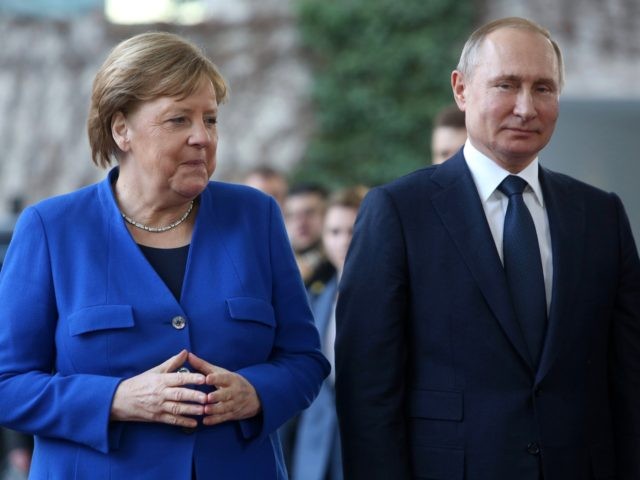Chancellor Angela Merkel said on Tuesday that Germany will consider using the vaccine developed by Russia, as the European Union continues to struggle to inoculate their populations against the Chinese coronavirus.
On Tuesday, the medical journal The Lancet said that the Russian vaccine, the Sputnik V, was over 91 per cent effective in blocking the COVID-19 virus in clinical trials.
Following the announcement, Merkel said that “every vaccine is welcome in the European Union,” going on to praise the Russian jab’s “good data”, in comments reported by Deutsche Welle.
Chancellor Merkel also revealed that she has spoken about the vaccine with Russian President Vladimir Putin.
Germany and the European Union as a whole have struggled to meet the demand for coronavirus vaccinations, falling well behind the United Kingdom, the United States and Israel.
While the EU has claimed that the slower rollout for the vaccine came as a result of stricter safety measures, Brussels ultimately approved the same three vaccines that were approved in the UK, in some cases just weeks later.
Chancellor Merkel defended her country’s vaccination rollout by claiming that ten million Germans will be vaccinated by the end of March and said that by the summer all residents will have been offered a vaccine. So far, only 1.85 million people have received their first dose of the vaccine in Germany.
“It is true that in some areas, the pace became slower, but there were good reasons for it to be slower,” Merkel said, adding: “We can’t make a rigid vaccination plan.”
In contrast to Germany, the United Kingdom has already vaccinated 10 million people, despite having a significantly smaller population, 67 million, compared to the 83 million in the European economic powerhouse.
A further five million Britons are expected to receive the inoculation by February 15th, according to Health Secretary Matt Hancock.
On Sunday, German Health Minister Jens Spahn suggested that the vaccines developed in China and Russia could be used in Germany.
This comes despite the health concerns about the Chinese and Russian vaccines, both of which have been administered to their populations before clinical trials were completed.
“Regardless of the country in which a vaccine is manufactured, if they are safe and effective, they can help cope with the pandemic,” Spahn said.
The German Health Minister admitted last week that Germany may face shortages of the vaccine in the coming months, saying last Thursday: “We will still have at least 10 tough weeks with a shortage of vaccine.”
The vaccination programme in Germany and the European Union at large has come under increasing criticism, with the editor of the German tabloid newspaper Bild, Peter Tiede, describing the fiasco as the EU’s vaccine rollout as the “biggest confidence-destroying programme in its history”.
Last week, the German national newspaper Die Zeit characterised the European Commission’s vaccination regime as the “the best advertisement for Brexit”.
Follow Kurt Zindulka on Twitter here @KurtZindulka

COMMENTS
Please let us know if you're having issues with commenting.